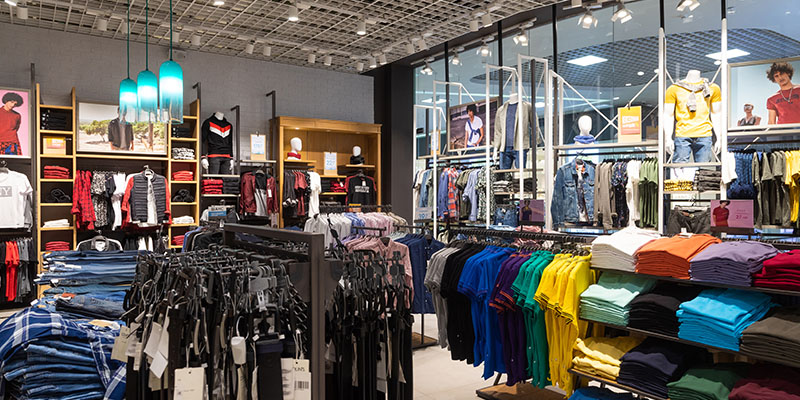
Why do Retail Stores Need to have Insulation Installed?
In the competitive world of retail, creating a comfortable and inviting shopping environment is essential to attract customers and drive sales. While aesthetics and product offerings play a significant role, the comfort and ambience within the store are also crucial. Insulation is a vital component that contributes to creating a pleasant shopping experience for customers and optimising the overall operational efficiency of retail stores. We will explore the reasons why retail stores need to have insulation and the benefits it brings to both customers and business owners. Also, discuss different areas of insulation that can be carried out in your retail store.
Comfortable Shopping Environments
Impact of Comfort on Customer Experience
A comfortable shopping environment directly influences customer experience and satisfaction. Customers are more likely to spend time browsing and making purchasing decisions when they feel at ease in the store. Insulation helps maintain consistent indoor temperatures, preventing uncomfortable temperature fluctuations that could deter customers from lingering and exploring the store's offerings.
Effects of Ambient Noise on Shopping
Noise pollution is a common issue in retail stores, especially in busy shopping areas such as malls. High noise levels can create an unpleasant shopping experience, making it difficult for customers to concentrate and communicate with store staff. Proper insulation reduces noise transmission from external sources and minimises sound reflections within the store, creating a more peaceful and focused shopping environment.
3 Key Benefits of Insulation in Retail Stores
Energy Efficiency and Cost Savings
Retail stores are often large spaces with significant heating and cooling demands. Insulation plays a crucial role in reducing heat loss during colder months and heat gain during hotter seasons, optimizing energy efficiency. By minimising the workload on HVAC systems, insulation leads to reduced energy consumption and lower utility bills, providing cost savings on overheads for the business.
Temperature Regulation and Merchandise Integrity
Maintaining stable indoor temperatures is essential for preserving the integrity of merchandise, especially for perishable or temperature-sensitive items. Insulation helps regulate indoor temperatures, ensuring that products remain in optimal condition. For example, proper insulation prevents extreme temperatures from affecting clothing, electronics, or food items, preserving their quality and shelf life.
Enhanced Acoustics and Customer Interaction
Effective insulation contributes to improved acoustics within the store. Clearer communication between customers and store staff enhances customer service and satisfaction. Additionally, a quieter environment allows customers to have meaningful interactions with products, enhancing the overall shopping experience and potentially leading to increased sales.
Key Areas of Focus for Insulation in Retail Stores
Exterior Wall Insulation
Exterior wall insulation, either a solid wall or a cavity wall, is crucial for controlling heat transfer and noise intrusion from outside. Insulating the outer walls helps maintain a comfortable indoor temperature, reducing the workload on heating and cooling systems. It also acts as a sound barrier, minimising the impact of external noise on the shopping environment.
Roof and Ceiling Insulation
Roof and ceiling insulation is essential for maintaining optimal indoor temperatures and preventing heat loss through the building envelope. Insulating the roof also helps regulate humidity levels, protecting merchandise and interior finishes from potential damage due to condensation. Additionally, ceiling insulation aids in reducing noise transmission between different sections of the store, creating a quieter and more enjoyable shopping experience.
Floor Insulation
Floor insulation is important for improving thermal comfort and reducing heat loss through the ground. Retail stores with concrete or tile flooring can benefit from insulating materials that provide a thermal barrier, preventing cold surfaces and creating a more inviting atmosphere for shoppers.
Take Aways
Insulation is a valuable asset for retail stores, offering a wide range of benefits that contribute to a positive shopping experience for customers and operational efficiency for business owners. By creating comfortable shopping environments, reducing noise pollution, and optimising energy efficiency, insulation plays a crucial role in enhancing customer satisfaction, driving sales, and promoting sustainable business practices. Retail stores that prioritise insulation ensure a competitive edge in today's market, as they provide an inviting and pleasant shopping experience that keeps customers coming back for more.


